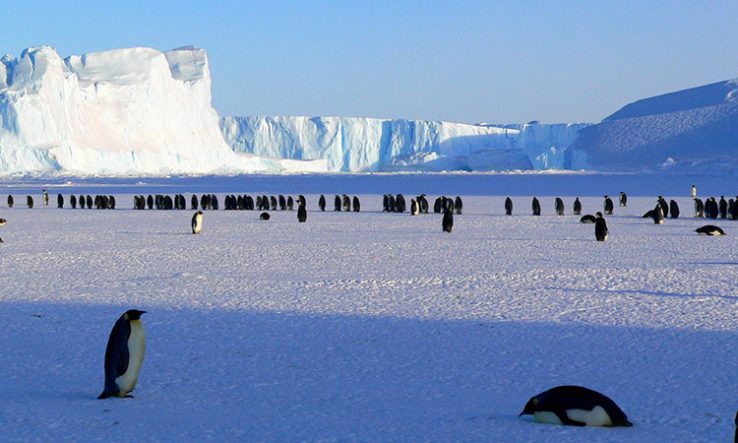
Researchers sceptical of intervention on Commission for the Conservation of Antarctic Marine Living Resources
A Ukraine official thinks it is “highly likely” that Russia will try to prevent his country from becoming the next chair of an international alliance for Antarctic conservation, owing to the ongoing war between the two countries.
The Commission for the Conservation of Antarctic Marine Living Resources is responsible for the science-based management of most species in the Southern Ocean. The chair plays an important role, guiding meetings and talks, and making proposals to resolve issues.
CCAMLR elects its chairs, but since 1982 it has done so by order of member names arranged alphabetically in the English language. Ukraine is next in line to become the chair for 2023 and 2024, after Sweden’s current two-year term expires.
But Andrii Fedchuk, head of Ukraine’s National Antarctic Scientific Center’s International Scientific and Technical Cooperation Department, fears that Russia might intervene during an upcoming two-week meeting, starting on 24 October, at which a decision will be made.
“It is just general practice to transfer the chairmanship each two years to the next CCAMLR member in accordance with the English alphabet, but formal consensus is required,” Fedchuk told Research Professional News. But he warned: “It is highly likely that Russia will block Ukraine’s chairmanship.”
David Agnew, CCAMLR’s executive secretary, said he was “unable to speculate” on what might happen if there was a hypothetical situation in which at least one member did not agree to the appointment of a member alphabetically next in line to become chair.
Doubting voices
Some researchers are sceptical that Russia would attempt such a move.
“Such action would render the Commission dysfunctional,” said Thomas Brey, a scientific committee representative to CCAMLR for Germany. “Surely Russia sees this, too.”
Brey thinks some CCAMLR members would insist on Ukraine becoming chair and would take retaliatory actions if there was a block. “I do not expect Russia to object to Ukraine to become chair,” he said.
Lynda Goldsworthy, a researcher at the Institute for Marine and Antarctic Studies at the University of Tasmania in Australia who studies governance of the Antarctic Treaty System, agreed that it was unlikely that Russia would attempt a block.
She said there would be “significant issues” for CCAMLR’s capacity to undertake work if Russia was to block Ukraine from taking up the position. Such action would, in her opinion, go against Russia’s interests.
“While they don’t have much to lose at present—they are currently not fishing—they have signalled their desire to reinvigorate their krill fishery sometime in future, so are generally staying (just) within the rules,” she added.
Fedchuk said any attempt to remove Russia from CCAMLR would require a consensus “which is unreachable at the moment”.
Russia’s foreign ministry did not respond to a request for comment.